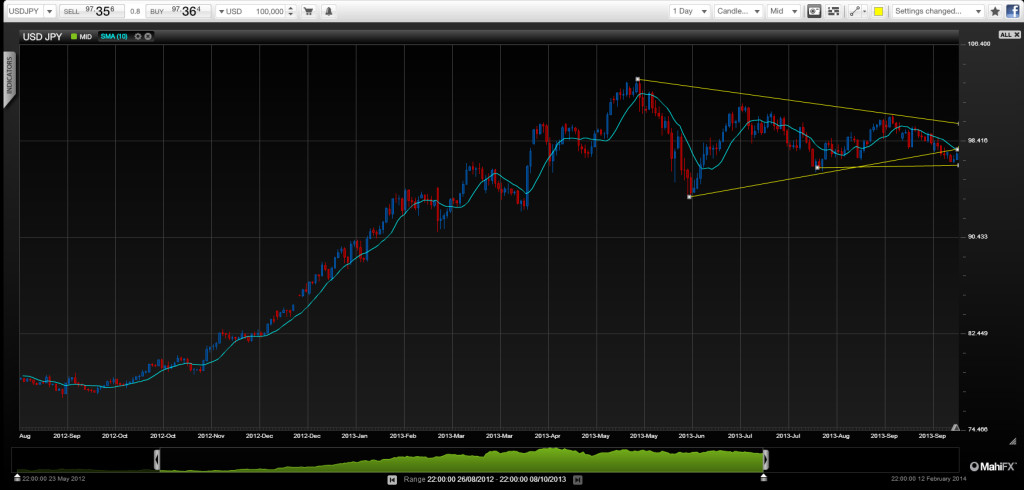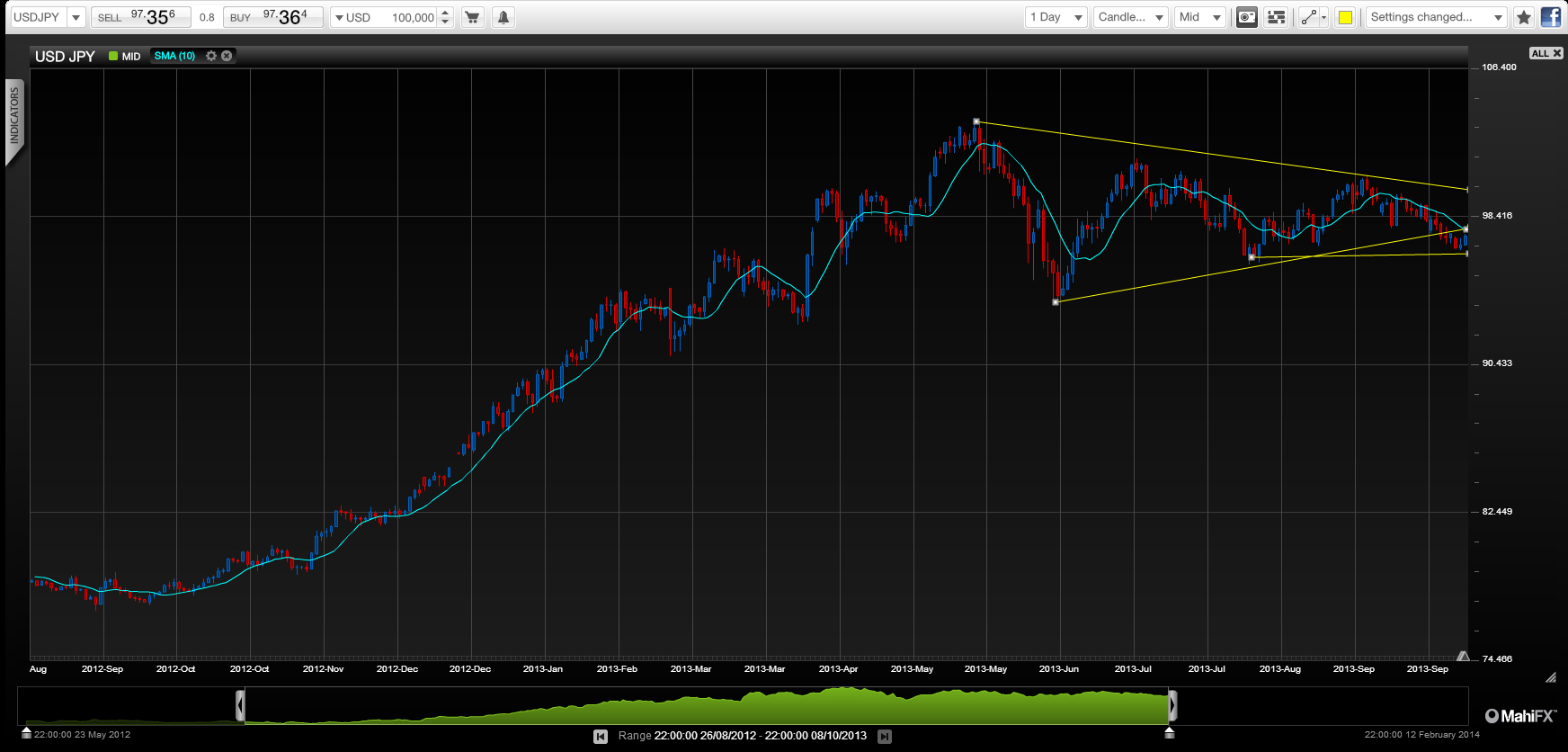The increasing possibility that interest payments will be missed on US Treasuries poses serious risks to the global financial system and could trigger rounds of central bank intervention should USD go into free fall.
The political stalemate in the US, should it become protracted, could result in a major sell-off of USD, particularly against safe haven currencies such as JPY, CHF and even the EUR. For traders this would present a lucrative one-way bet, at least for a short while.
By Justin Pugsley, Markets Analyst MahiFX Follow MahiFX on twitter.
Both Japan and Switzerland have central banks, which have very publicly demonstrated a commitment to capping the rises of their currencies. However, an across the board USD rout could see central banks intervening in a concerted fashion to stabilise the financial system – that would lead to many traders rushing to cover their USD short positions.
This scenario is a very real possibility if the impasse carries on in Washington. The IMF warned on Tuesday of “major disruptions in financial markets” if interest isn’t paid on US debt, which could happen if US politicians don’t agree to lift the debt ceiling by October 17 – the date when the government supposedly runs out of money to make the payments.
Triangle formation could be powerful catalyst for USD/JPY breakdown

Rout would likely start in asset markets
Most likely any major sell-off in USD would be proceeded by a crash in stocks and possibly US Treasuries as well – two markets that have a strong influence on the US Federal Reserve’s actions. However, that could also be the cue for politicians to temporarily set differences aside and come to an agreement over the US debt ceiling in the name of saving the economy and US jobs.
The IMF also rightly warned that a protracted political stalemate would cause very real damage to the economy – the implication being that the US Federal Reserve would carry on with its quantitative easing programme for a lot longer. The likely appointment of Fed Vice Chairwoman Janet Yellen as head of the Fed to replace Ben Bernanke should see a strong continued bias towards easy money policies.
All of this is bearish for USD. However, other economies would soon be impacted and it wouldn’t be long before the likes of the Bank of England would begin mulling increases in new money creation to support growth at home. The short-term outlook for USD might be bearish, but such are the economic and political uncertainties that it’s exceptionally difficult to make a longer-term call on the major currencies pairs at the moment.
Further reading: How would a US debt default impact USD?
